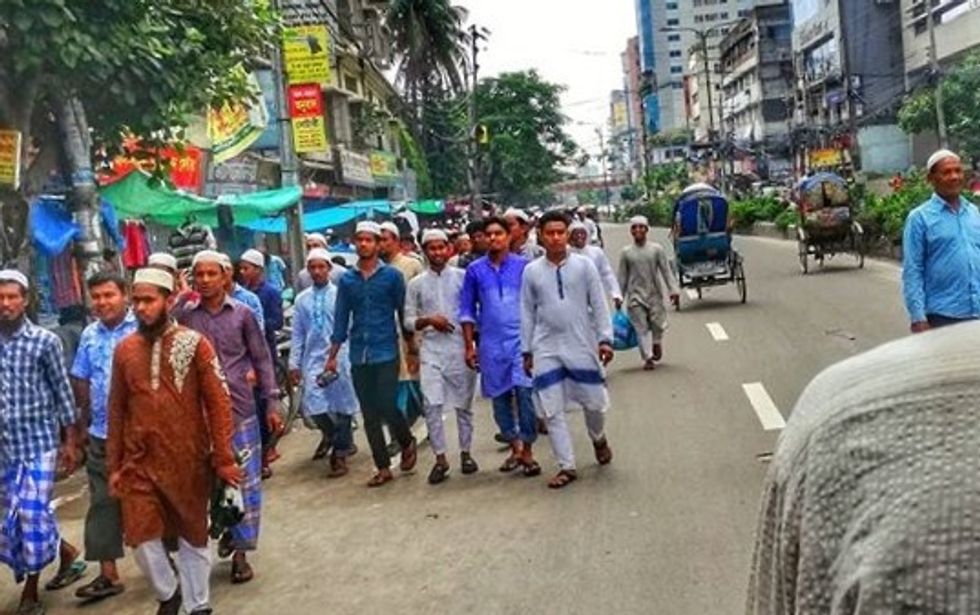On July 29, 2018, two children were run over by a bus in Dhaka, Bangladesh. Days later, students were attacked by rubber bullets and tear gas, activists began disappearing, and citizens were being censored online. So, how does an everyday traffic accident turn into an all-out feud between a government and its citizens?
In my personal experience, being on the roads of Dhaka is 10 times scarier than the roads in New York City. To set the scene, the roads are infinitely more congested than the streets of NYC, if that is even possible. There are traffic lights only in large cities like Dhaka that people don't really follow. People hop on moving buses, the roads are narrow, and people who should not be licensed are licensed. It is no wonder that traffic accidents are a daily occurrence in Bangladesh. It is estimated that over 4,000 people were killed in road accidents alone last year.
Young people were fed up with the omnipresence of inadequate road safety, so they began protesting. But their protests were met with tear gas and rubber bullets by the police. The protesters blocked roads and were in turn attacked by another student organization that has ties to the ruling party.
What is most interesting about how these events unfolded is how it really transformed into a story about government corruption and censorship. Students are afraid of revealing their identities to news outlets, photographers and journalists are being out in prison, and the government cut off the Internet so people would not post about the events on social media.
It is baffling, especially to Western democratic societies who pride themselves on free speech, that a simple protest about roads could take a turn into something so violent and appalling. Bangladesh does categorize itself as a democratic nation (parliamentary democracy.) But democracy is meaningless when you can not see it reflected in the lives of everyday people. And for that to happen, some things are going to have to start changing in this small country.





















